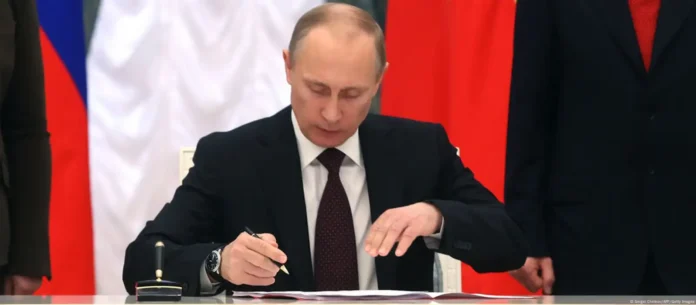Russian lawmakers have passed a controversial bill in the State Duma that would impose fines on individuals who search online for materials deemed “extremist” by the state, in a move widely condemned as a dangerous escalation of censorship and control over digital freedom.
On Tuesday, the bill was approved by 306 votes to 67 in the lower house and now proceeds to the Federation Council, Russia’s upper house, where it is expected to pass with little resistance before reaching President Vladimir Putin’s desk for final approval.
If enacted, the legislation would fine individuals up to 5,000 rubles (approximately $64) for deliberately searching for or accessing items listed as extremist content by the Russian justice ministry. This list already contains more than 5,000 entries, including songs in support of Ukraine, blog posts by the dissident punk band Pussy Riot, and websites critical of Putin’s administration.
The mechanics of how authorities will detect such search activity remain unclear, raising concerns about digital surveillance and enforcement. It is also uncertain whether internet service providers or platforms would bear responsibility for monitoring user activity.
While Russian authorities have long blocked thousands of websites under extremism laws, this is the first time individual users would face penalties simply for searching restricted content. The law also expands state control further by banning advertisements for virtual private networks (VPNs) and penalizing users who share SIM cards—tools commonly used to maintain privacy online.
The bill has sparked rare criticism across Russia’s political spectrum. Protests were held outside the State Duma hours before the vote, leading to the arrest of several demonstrators, including a journalist from the Kommersant newspaper.
Boris Nadezhdin, an opposition politician and protest organizer, likened the measure to “something out of 1984,” referencing George Orwell’s dystopian novel. “This law punishes thought crimes,” he told AFP.
The bill’s origins have also raised eyebrows. Initially framed as regulations for shipping clerks, its current provisions were added quietly through last-minute amendments, only later uncovered by the media.
Even some pro-Kremlin figures expressed concern. Margarita Simonyan, editor-in-chief of Russia Today, warned that the law could undermine investigative journalism into extremist groups. A state-affiliated internet safety agency also cautioned about the bill’s broader implications for freedom of expression and online research.
Despite dissenting voices, Duma speaker Vyacheslav Volodin defended the legislation, claiming it targets those who “seek to destroy and ruin” Russia through digital means.
As the bill nears enactment, critics warn it may further entrench authoritarian control over Russia’s information landscape and criminalize independent thought online.
Written By Rodney Mbua



















